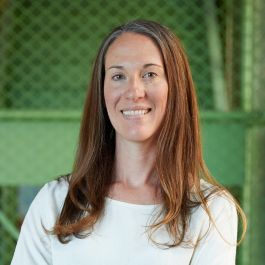
A company is only as good as its employees. So how do today’s executives ensure their leadership styles best set up their teams and companies for success?
Built In Chicago asked three local tech leaders to find out.
Kalderos CTO Dave de Vogel describes his leadership style as collaborative and communicative. In order for his teams to be successful, de Vogel said that they must have a continuous cycle of communication. At Farmer’s Fridge, CTO Candice Savino said that when employees feel they’re supported, they’re more likely to go beyond their comfort zones and experience growth — hence why leadership gets to know each team member’s goals and strengths.
And at C.A. Fortune, leadership means acting as a coach in order to develop individuals into managers, CEO Tyler Lowell said. By acting as a guide, he’s able to take the time to identify and understand opportunities within each employee.
Read on to learn more about these three Chicago execs’ leadership styles.
In order to align managers and help them work and grow together, C.A. Fortune CEO Tyler Lowell said that the company utilizes a series of internal leadership trainings.
How do you like to work with your direct reports?
The culture at C.A. Fortune is based on innovation, growth and delivering exceptional work — and my team is no different. My direct reports are the very best in their field and I rely on them to shape the vision for their teams and deliver on our total firm strategy. The keywords I strive to exemplify are humble, transparent, inspirational, reflective and competitive. We may not always agree, but healthy debate allows us to find the best solutions to complex problems.
What strategy have you found to be key for empowering the managers below you and supporting them in their growth?
First and foremost, leadership based on character and values is essential for successful growth. I act as a coach to develop my leaders, taking the time to identify and understand opportunities, while working collectively to cultivate them into strengths. The leaders who have effectively influenced me are those who have the ability to challenge members of their organization both personally and professionally, while also demonstrating vulnerability and empathy — two traits I express to my team each day.
We spend a lot of time together, building trust and relationships that allow us to challenge each other and still have fun. I’m also a big believer in surrounding yourself with the very best. And rather than “over-manage,” I like to take a step back and give them space, yet I’ll “be present” when they need the support, guidance, or at times, the extra push.
I act as a coach, taking the time to identify and understand opportunities, while working collectively to cultivate them into strengths.”
What formal training does your company offer developing leaders to help them grow and thrive in their roles as people managers?
A manager’s habits, and how they make everyday decisions, are what matters most to employees. This is where culture becomes reality. Managers all are critical in scaling company philosophies, not only in the way we grow and do business but in the way we keep the C.A. Fortune culture authentic. So, while we value and invest in external training, we also utilize internal leadership training series to thoughtfully align our managers as one team that communicates cross-functionality and grows together. In 2020, the leadership training series focused on leadership values at C.A. Fortune, leading remotely and performance coaching.
To help empower and support managers, Farmer’s Fridge CTO Candice Savino said knowing each person’s short- and long-term goals and strengths can lead to more understanding and better relationships.
How do you like to work with your direct reports?
My management style is to give clear direction and support without making anyone feel like they are being micromanaged. I think it’s important for people to feel that they have the autonomy to do their job, while still being collaborative.
In terms of how I interact with my direct reports, this has changed a lot pre- and post-COVID-19. Before, I would sit with my team so we could have a mix of formal and informal communications. The pandemic has forced me to shift this approach as everything went virtual. I still have weekly team meetings and one-on-ones with my direct reports, but I utilize Slack a lot more while we are remote to replace the informal communication that used to happen live.
I’ve found that if people feel supported, they’ll be more comfortable stretching out of their comfort zones and growing in their careers.”
What strategy have you found to be key for empowering the managers below you and supporting them in their growth?
Every person is different. People are motivated by different things so it starts with getting to know them and what their short and long-term goals are as well as their strengths.
I have found that if people feel they are in a supportive environment, they will be more comfortable stretching out of their comfort zones and growing in their careers by taking on new responsibilities or skills. When I’m building teams, I think about finding people who have a core skillset needed to help the company — but the role also needs to include something new for that individual that they haven’t already done before. This is often needed to hire the best talent. People want to feel like they are moving forward in their careers and personally growing, while also bringing immediate value to their role.
I’m always on the lookout for new opportunities internally that stretch individuals in new areas, while giving them healthy exposure to others across the company. Making sure they are set up for success in these situations is critical. Sometimes there’s little room for error and other times there’s less risk and more time to expand their scope.
What formal training does your company offer developing leaders to help them grow and thrive in their roles as people managers?
We hold internal, formal training related to performance feedback and respect in the workplace. We are looking to expand this in the future.
As the CTO at Kalderos, Dave de Vogel said that his role is to clearly and transparently communicate the company’s goals to each person on the team. In turn, this allows for clear, feedback-driven communication across the entire company.
How do you like to work with your direct reports?
I like to think of managing as facilitating success. In conversations with candidate technologists, I’m drawn to those who are inspired, collaborative and courageous, and it’s no coincidence that those are a few of our formal company values. Certainly, technical skills are important in a technologist, but I’ve found that people with personal attributes that align with our core beliefs are likely to bring technical skills with them. More importantly, they bring a capacity for and an interest in extending those skills.
Technology and requirements are constantly changing and technologists who can change with them are the most valuable to our team. More than management, such people need someone to help move or remove barriers to their success. That’s my role: to clearly and transparently communicate to each person on the team what it is we’re trying to accomplish and then to make sure there’s nothing preventing anyone from bringing their talents to bear on our efforts to get there.
What strategy have you found to be key for empowering the managers below you and supporting them in their growth?
All of our strategies rest on the foundation of clear, unambiguous and feedback-driven communication. Over the course of our company’s history, we’ve spent a lot of time and effort refining the quality of our communication. When we were smaller, one-way and top-down communication worked well for us because leaders who were working on our strategic vision were also involved in executing focused tactics to implement it. As we’ve grown, we’ve been lucky to be joined by many talented teammates who are better at creating and implementing solutions than strategists are.
I’m drawn to those who are inspired, collaborative and courageous, and it’s no coincidence that those are a few of our formal company values.”
The job of a leader and strategist has become much more about communicating corporate direction and destination and much less about implementation. Through continuously refined communication of the desired end state and an environment where our teams are comfortable providing feedback and questions when goals are unclear, they can be empowered to select and implement ideal solutions based on their own best assessments, leading to their ultimate success.
What formal training does your company offer developing leaders to help them grow and thrive in their roles as people managers?
One of our hallmarks, as we have grown, is our intent to remain organizationally flat. We set that objective to favor action and velocity over permission and approval. As more people have joined our flat organization, the potential for managers to have too many direct reports has allowed us to create an opportunity to grow management talent. While we reserve the job of HR manager to a smaller group, daily management and coaching can be delegated to senior members of our teams. We all have access to a set of tools and processes to support these management interactions along with detailed training on how to use them.
On a weekly basis, people share a documented status update with their team mentor that describes how they’re feeling, along with what they have been and will be working on. Those updates then become agenda items as mentor and mentee meet on a regularly scheduled basis at least monthly to provide each other feedback and target opportunities for improvement. Further, anyone in the company can use the tools to schedule a one-on-one meeting with anyone else in the company, making receiving and giving quality feedback a skill we value and provide training for here at Kalderos.













